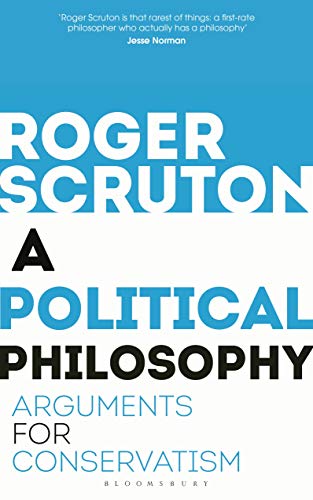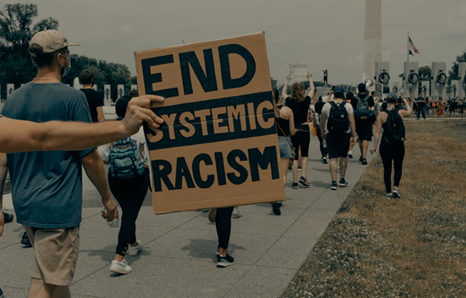 My friend Matt Anderson thinks that social conservatives have given in to “handwringing” and “freak out panic end of the world despair” after last Tuesday’s election. I think he is commenting on what he sees as a general trend among social conservatives, but he singles out me and Al Mohler in particular. Yes, Mohler and I did refer to the election as a disaster, but as far as I know there hasn’t been any handwringing on the part of either of us. Anderson has not only misread us, but I think he also risks missing the lessons of this last election.
My friend Matt Anderson thinks that social conservatives have given in to “handwringing” and “freak out panic end of the world despair” after last Tuesday’s election. I think he is commenting on what he sees as a general trend among social conservatives, but he singles out me and Al Mohler in particular. Yes, Mohler and I did refer to the election as a disaster, but as far as I know there hasn’t been any handwringing on the part of either of us. Anderson has not only misread us, but I think he also risks missing the lessons of this last election.
If the culture war were a chess game, the last election was a check, not a checkmate. It’s not that social conservatives are out of moves, completely hemmed in with nowhere else to go. We lost a battle, but not the war. There is still much to do. We live to fight another day, and our prospects are good on many fronts.
Having said that, we make a huge mistake if we whistle along like Tuesday’s election was anything other than a disastrous defeat. And I’m not simply talking about the fact that America–with wide-eyed realism–reelected the most anti-life, anti-marriage, and anti-religious liberty candidate in American history. That’s not all that happened. We have been watching support for traditional marriage wane in national polling for many years now. We knew that the ground was shifting beneath our feet, but last Tuesday was the first time in American history that any state won a statewide vote in favor of gay marriage. And it happened in four states at once! Yes, the votes were close. Yes, they were in liberal states. But it was a remarkable victory that even five years ago would have been very unlikely. It signaled that there is a sea change going on right now in people’s thinking about marriage, and the trend is going away from us not toward us. Add to that the fact that two states voted to legalize marijuana for recreational use, and the cultural declension comes into clear view.
It does no one any good to sing songs to a troubled heart (Prov. 25:20) or to proclaim “peace, peace” when there is no peace (Jer. 6:14). To do so would involve the same Pollyannaish credulity that had conservatives thinking that Mitt Romney’s reelection was a slam dunk when all the polls indicated otherwise. We are not served by refusing to look reality in the face. Indeed, before the remedy comes the diagnosis, and social conservatives need to come to grips with what ails their cause.
To wit: We are not winning hearts and minds on the issue of marriage. Why is that? Is there anything to be done about it? Is Rod Dreher right to say that we should give up the fight? Social conservatives need to face these questions head-on, but they won’t be able to if discussion is foreclosed by the erroneous notion that things aren’t so bad after all.
As a Christian, I have a special concern that believers understand that our convictions and our witness are in no way dependent upon the rise or fall of either political party. There are cynics on both sides of the aisle, and we are not hitching our wagon to either one. Our ultimate hope is in another city altogether (Heb. 13:14). But while we await that city we have the happy privilege of bearing witness to the gospel of Jesus Christ. And as disciples we love our neighbors by seeking the common good of the city we inhabit now (Jer. 29:7). We can stand with others on principle for the common good, but our secular coalitions are not ends in themselves. If a political party can be more or less enlisted in the service of our cause for the common good, then so be it. If it becomes necessary to sever those ties on principle, then so be it. We stand on principle, not partisanship. Our ultimate allegiance is to King Jesus, not to the powers that rise and fall in advance of His kingdom.
Here’s the bottom line for me. I want to see our nation affirm a culture of life, the sanctity of marriage, and religious liberty. The last election reveals that social conservatives are failing at that task. Why is that? How can we mitigate the decline? These are the nuts that social conservatives need to crack, but they’re not going to do it if they are consoling themselves with “social conservative issues actually did better than the candidate” in the last election. That is backward looking, and we need to be looking forward. That is where my eyes are trained, and I’m hoping others’ will be too.




14 Comments
Pingback:
James Stanton
“Here’s the bottom line for me. I want to see our nation affirm a culture of life, the sanctity of marriage, and religious liberty.”
Denny, I want to commend you for always standing up for your beliefs. I’m often a critic of many influential social conservatives because of their seeming myopia but I respect your voice.
The one thing that frustrates me about this platform is that it only appeals to a certain kind of Christian voter and necessarily excludes many others.
A culture of life is restricted to the abortion debate and doesn’t give any credence to those who believe valuing life would support efforts to increase access to life-saving healthcare for millions of working families who can’t afford decent health insurance.
The sanctity of marriage is marked by strong opposition to the state recognizing relationships between homosexuals. Yet, divorce has been a much bigger factor in eroding confidence and trust in the idea of the biblical family. Nothing these politicians do, say, or legislate changes God’s definition of marriage.
In short, I don’t believe we as a nation have affirmed a culture of life or the sanctity of marriage for a very long time. Instead, we have selective ideas on what these concepts really mean. Now the fruits of our collective sin is coming to bear.
Imagine if we poured the resources spent this election cycle for efforts to serve the poor, needy, homeless, and in doing so showing the heart of Christ to the masses. I think only good could follow as a result of that. What message are we really sending with the status quo?
Ryan
James, I’m not sure I see the exclusion you’re referring to. “Pro-life” deals explicity with abortion and euthanasia; a “pro-health” agenda is a good thing, but I don’t see it as being mutually exclusive to the pro-life position. A godly definition of marriage would change the divorce laws in this country, and it seems that most who oppose gay marriage would like to see divorce dealt with, too – however, the political pressure is on one issue and not the other right now, so that’s where the emphasis tends to go. I don’t see those issues being mutually exclusive, nor exclusive to serving the needy.
I agree that we lost the culture of life and the sanctity of marriage some time ago, but how is the position that Burk describes exclusive to some Christians? Does losing those things mean that we shouldn’t seek to bring them back?
James Stanton
No, I agree that’s what most social conservatives think pro-life is limited to. I think there are other aspects to a comprehensive pro-life view to include economic and social policies that affect the family.
I am not interested in growing the Republican party. I think a socially conservative third party that is not wedded to Randian economic conservatism would have more influence over national politics.
Pingback:
Nathan Cesal
What do you do when your definition of marriage steps on my religious liberty?
Bill Soistmann
Exactly. That’s why I don’t buy the argument that Obama is the “most anti-religious liberty” candidate ever.
Freedom *of* religion necessitates freedom *from* religion.
tony wood
What do you do when YOUR definition of marriage steps on my religious liberty? It works both ways see.
Bill Soistmann
I’m not sure I know what you mean it works both ways. It only works one way. If my definition of marriage restricts your freedom to marry whom you want, then you are right. If my definition of marriage allows you to marry someone different, but you choose not to, how is that a problem?
Jake Meador
Dr. Burk – I think Matt’s argument is simply that we need to be very clear on what did and didn’t happen in this election. We need to keep two important points in mind: a) Politics are downstream from culture. So speaking about this election as if some sort of light switch has been flipped and we went from being a country friendly to social conservatism on November 5 and ceased to be on November 6 is inaccurate. Social conservatives have been losing the marriage fight for a long time. The worldview war, if we can speak of such a thing, wasn’t lost on November 6th. b) Electing a politician isn’t the same thing as enacting a policy. It simply means that enacting certain policies becomes easier and enacting others becomes more difficult. Electing Obama means religious liberty is going to be more jeopardized in the next four years than it would be under Romney. It does not mean that we need to erect a tombstone that says “Religious Liberty, Deceased November 6, 2012.”
Denny Burk
I would agree with all of that, and I really don’t think that Matt and I disagree much substantively. But I do think we need to take stock of our losses and learn from them going forward. That doesn’t mean that we need to be glum and defeatist. We just need to see where we are and move forward. That’s my point. Thanks for commenting!
Jake Meador
Dr. Burk – Thanks for replying. One topic I would be interested to hear more evangelicals discussing is Tolkien and Berry’s idea of “the long defeat.” Alan Jacobs blogged about it recently, but he’s the only one I’m seeing discuss it much. I’m curious to see how others think about that idea. I’m a post-millenialist so it’s something I’m really wrestling with at the moment, I imagine it’s probably a less troubling concept for people of different eschatological views. Anyway, how does this idea of a long defeat with momentary triumphs inform the way we view political events? I’m not sure how I’d answer that, but I’d be curious to hear a few other people try.
Nathan Cesal
They are probably referring to having to modify their behavior when dealing with a same-sex couple. They think it’s wrong so they should have the right to discriminate or else they are denying their faith someway. Basically, they are bemoaning the loss of what they are calling their religious freedom to squelch and control other people.
Don Johnson
http://www.huffingtonpost.com/jim-wallis/the-new-evangelical-agend_b_2137388.html?ncid=edlinkusaolp00000009